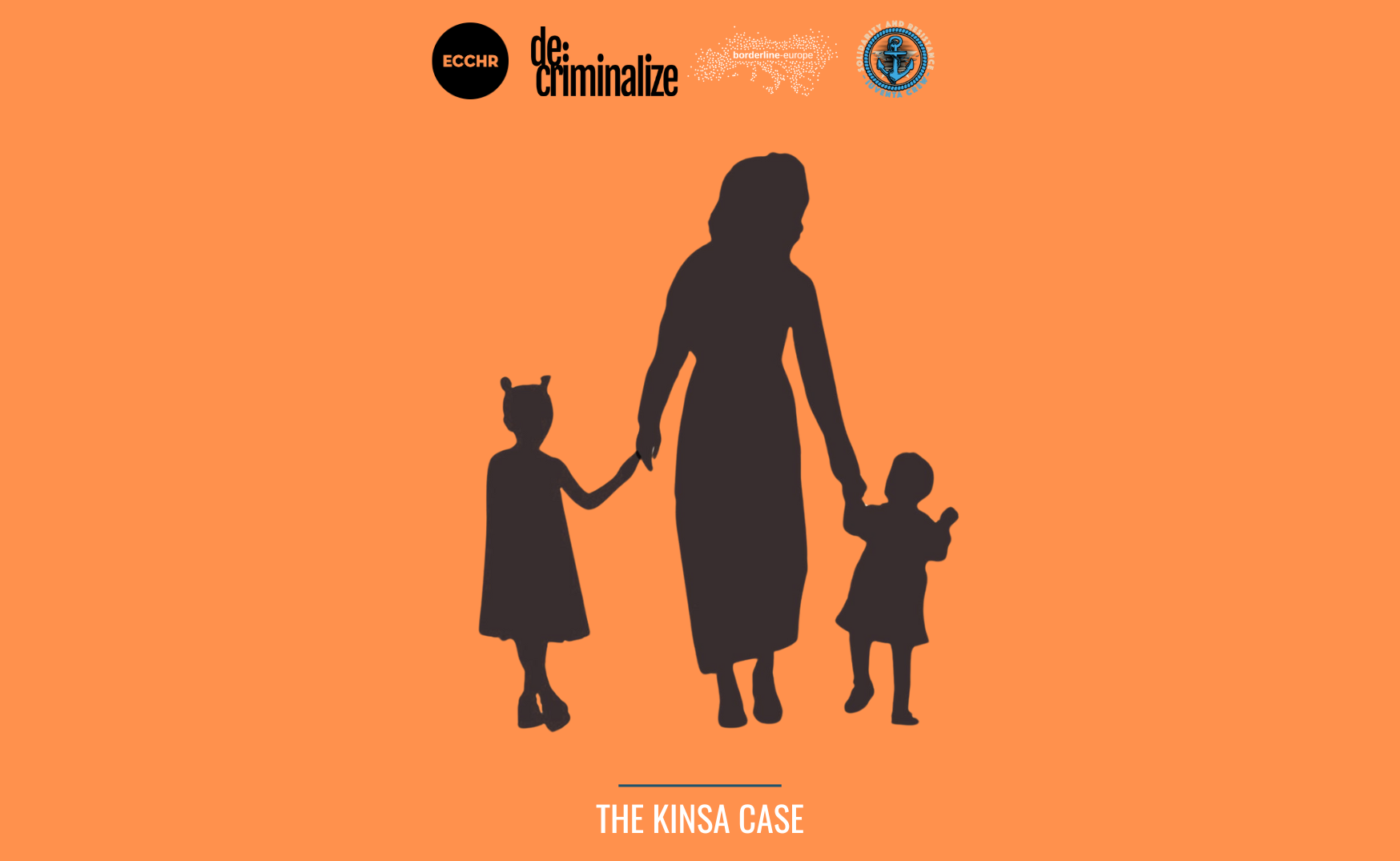Joint press release by de:criminalize, ECCHR, Iuventa Crew and ProAsyl.
03.06.2025 – In a landmark ruling issued today, the European Union’s highest court declared that helping minors under one’s care to enter the EU to apply for asylum is not a crime. The Court of Justice of the European Union (CJEU) held that such conduct does not constitute “facilitation of unauthorised entry” under EU law when it protects minors and ensures family unity, two rights enshrined in the EU Charter of Fundamental Rights. “Such a parent merely exercises his or her responsibility in respect of the child,” the Court clarified.
The judges ruled that facilitation or so-called anti-smuggling laws must not conflict with the fundamental rights enshrined in the EU charter, in particular the best interests of the child (Article 24), the right to family life (Article 7) and the right to asylum (Article 18). The Court stressed that given O.B. had filed an application for international protection, she must not face criminal sanctions due to unauthorised entry.
“This is a very important day for those seeking justice at the borders of Europe. The judgment shows that every national and European law can be challenged under the lens of the EU Charter of Fundamental Rights. This could be the beginning of the reconsideration of the entire anti-smuggling legislation, leaving no space for the criminalization of migration and solidarity,” says Francesca Cancellaro, O.B.’s defense counsel.
The court’s assessment was requested in relation to the Kinsa case (formerly Kinshasa, C-460/23) regarding a Congolese national and her family members. O.B. arrived at Bologna airport in August 2019 with her 8-year-old daughter and 13-year-old niece. The family had used false passports to travel to Italy and seek international protection. On arrival, O.B. was arrested and separated from the two children and faced charges of facilitating their unauthorized entry, carrying up to five years imprisonment.
Cancellaro submitted to the Bologna court the request for a preliminary ruling by the CJEU to assess the compatibility of the EU Facilitators Package – as well as the related Italian Immigration Act, Article 12 – with broader EU law and the Charter of Fundamental Rights.
“This ruling shows that the EU Charter of Fundamental Rights is not just symbolic, it has teeth,” says Allison West, senior legal advisor at ECCHR. “The judgment is, however, tightly confined to cases involving caregivers and minors, leaving the wider criminalization of humanitarian assistance untouched. Now, it’s up to future litigation to build on it, to challenge the broader misuse of smuggling laws against human rights defenders, solidarity actors, and people on the move themselves.”
Facilitation laws mainly criminalize people on the move themselves. In recent years, thousands have been sentenced to lengthy prison terms under anti-smuggling laws simply for steering a boat or car during their own journey, or for taking on other tasks onboard—such as using a GPS. But these laws also criminalize solidarity acts, such as search and rescue operations or the provision of shelter, water, food or clothing. In 2024 alone, at least 142 individuals were facing criminal or administrative proceedings for acts of solidarity in the EU.
The ruling comes at a critical time, as EU institutions renegotiate the Facilitators Package, the set of so-called anti-smuggling laws that have long enabled the criminalization of people on the move and those who assist them. This judgment strengthens the case for explicitly enshrining humanitarian exceptions in EU law, to prevent its misuse against those who act out of care, solidarity or necessity.
“The so-called facilitation laws have led to the prosecution and mass incarceration of people on the move” says Inés Marco from the NGO, de:criminalize. “The suffering caused is incalculable and irreparable. But today’s judgment must be the start of the dismantling of these laws. The new EU facilitation directive and all cases of criminalisation must be urgently re-assessed in light of the principle underlying this ruling: that fundamental rights should always prevail over border protection.”
“We rarely ask why people are forced to turn to smugglers: the lack of safe and legal entry routes for people to apply for international protection. As a result, it’s acts of ‘facilitation’ that protect fundamental rights such as the right to life and self-determination. The law must reflect that,” says Sascha Girke from the Iuventa-Crew, who was acquitted last year by a court in Italy of facilitating unauthorized entry during rescue at sea.
“The message from the CJEU is crystal clear and brings justice to the family – Italy wrongfully criminalized them. But this can only be a first step: many people, including numerous refugees who want to help others in need, continue to risk criminal proceedings before national courts. It is therefore urgently necessary for the EU to introduce an explicit exception for people acting on humanitarian grounds. Because flight and solidarity are not crimes,” says Karl Kopp, Executive Director at PRO ASYL.
You can find more information, frequently asked questions, legal critiques and voices of affected individuals, activists and other organizations on the Kinsa case website.
You can find the ruling by the CJEU here: https://curia.europa.eu/jcms/upload/docs/application/pdf/2025-06/cp250062en.pdf
For further queries or interview requests, please contact: kinsa-case@solidarity-at-sea.org
